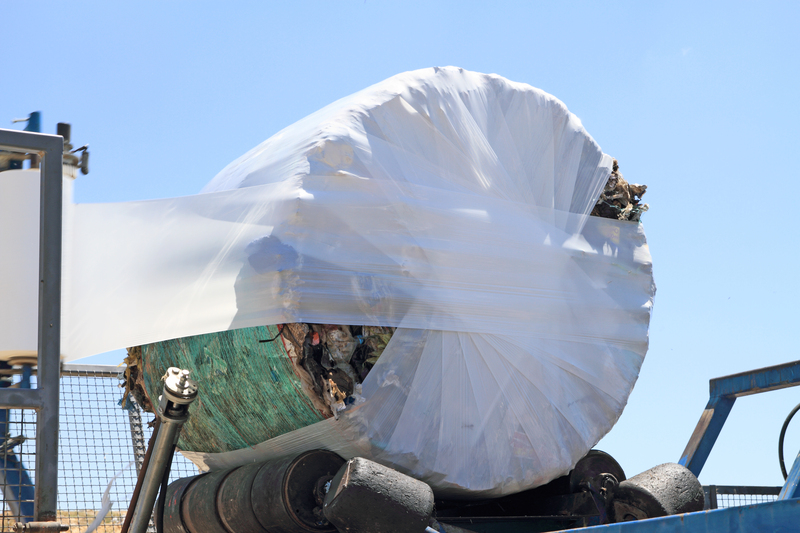Streamlining Skip Hire: Key Dos and Don'ts
Skip hire is an essential service for efficient waste management, especially during home renovations, construction projects, or large-scale cleanouts. However, many people face unnecessary hurdles and expenses simply because they are unaware of the best practices. In this comprehensive guide, we'll help you streamline your skip hire process with actionable dos and don'ts, ensuring you save both time and money while staying compliant with regulations.
Understanding Skip Hire: What You Need to Know
The process of hiring a skip involves more than just booking a container and filling it with rubbish. To optimize your skip hire experience, it's important to consider your project's requirements, local regulations, and provider options. By doing so, you'll avoid hidden costs and environmental issues, making the entire process smoother and more efficient.
Why is Streamlining Skip Hire Important?
- Cost Efficiency: Avoid paying for more skip capacity than needed or facing penalties for overfilling.
- Time Saving: Enjoy faster, hassle-free waste removal.
- Environmental Responsibility: Ensure your waste is being disposed of or recycled appropriately.
- Regulation Compliance: Steer clear of fines and legal complications by following local waste laws.

Key Dos for Streamlined Skip Hire
To guarantee a seamless skip hire experience, it's essential to follow a few established guidelines.
Here is a list of the fundamental DOs:
Do: Choose the Right Skip Size
Selecting the right skip size is vital. o Undersized skips can lead to overflows and extra charges. Whereas, choosing an oversized skip unnecessarily inflates your costs.
- Estimate your waste volume. Most skip hire providers offer a helpful size guide (such as 4-yard, 6-yard, and 8-yard skips).
- If in doubt, consult the provider. It's better to slightly overestimate than underestimate to avoid hiring a second skip.
Do: Know What Can and Cannot Go in a Skip
Every skip hire company has specific rules about what materials they'll accept.
- Allowed: General household waste, garden debris, furniture, wood, plastic, and metal.
- Prohibited: Asbestos, batteries, tyres, electrical equipment, hazardous waste, paint, and chemicals.
Check your skip hire provider's website for a precise list or ask directly before loading.
Do: Plan Your Skip Placement in Advance
Where you put your skip matters for access and legal reasons.
- Private Property: Place the skip on your driveway or yard, if possible.
- Public Roads: If you must place a skip on a public road, you'll need a council permit.
Tip: Factor in pedestrian access, driveways, and local traffic rules.
Do: Obtain Permits When Needed
- If your skip is on public land, you'll almost always need a skip permit. Apply early - waiting could delay your project.
- Some councils require safety features such as lights or cones around your skip.
Do: Load the Skip Efficiently
Properly loading your skip helps you make the most of its capacity and avoid overfilling.
- Begin with flat items (doors, planks) on the base.
- Break down bulky items as much as possible.
- Fill the skip evenly to prevent imbalances or tilting.
- Do not exceed the fill line - it's illegal to transport overfilled skips.
Do: Compare Multiple Skip Hire Providers
Shopping around ensures you get the best rates, service quality, and skip selection. Read customer reviews and assess their recycling policies for responsible waste handling.
Top Don'ts to Avoid Skip Hire Headaches
Just as important as the dos are the don'ts. Let's look at what mistakes to avoid:
Don't: Dispose of Prohibited Materials
- Never load hazardous waste such as asbestos or chemicals into a skip. This can lead to heavy fines and environmental damage.
- If uncertain about an item, always consult your skip hire company beforehand.
Don't: Overfill the Skip
One of the most common skip hire offences is overloading. Skips are designed with a fill line for safety and legal compliance.
Why is overfilling a skip problematic?
- Transport Risks: Excess waste can fall out or make the vehicle unsafe to drive.
- Legal Penalties: Most companies refuse to collect overfilled skips or charge extra fees.
Don't: Leave Your Skip Unattended
- Unattended skips may attract fly-tipping (illegal dumping of outside waste).
- Consider covering or securing your skip, particularly if it will be left overnight or is situated in a public area.
Don't: Ignore Permit Requirements
- Placing a skip on public land without a permit can result in fines and removal costs.
- Failure to place warning markers (as your council may stipulate) is another common pitfall.
Don't: Block Access or Create Hazards
- Don't position your skip where it blocks driveways, paths, or access for emergency services.
- Ensure the area around the skip remains clear to prevent accidents.
Don't: Forget About Recycling Opportunities
- Many skip hire firms sort recyclable waste at their facility, but it's helpful to segregate materials at source where possible.
- Consider if some bulky items can be reused or donated before discarding them in a skip.
Skip Hire Streamlining Tips for Specific Situations
Domestic Projects
For home clearances or garden remodeling:
- Book a skip a few days in advance, especially during busy seasons.
- Inform neighbors if skip placement slightly affects shared spaces.
- Choose a smaller skip size for limited waste, and a larger one for extensive renovations.
Commercial and Construction Projects
- Schedule regular skip exchanges to avoid site delays.
- Use specialist skips for rubble, concrete, or hazardous materials.
- Coordinate with your skip hire provider to ensure compliance with waste management legislation.
Environmentally-Conscious Skip Hire
- Work with skip companies that advertise high recycling rates.
- Reduce the number of mixed-waste skips by separating recyclable items in advance.
Frequently Asked Questions on Streamlining Skip Hire
How long can I keep the skip?
Hire periods vary between companies but typically last from 7 to 14 days. Agree on a collection date in advance or arrange extensions if necessary (extra charges may apply).
What happens to my waste after collection?
Legitimate skip hire providers take your waste to licensed transfer stations. Most strive to recycle a high percentage, diverting waste from landfill. Request environmental credentials if you want to ensure responsible disposal.
Can I move the skip once it's been delivered?
No. Skip containers are very heavy and must be moved by professionals using specialized vehicles. Always finalize placement with your provider beforehand.

Key Takeaways for Efficient Skip Hire
- Plan and estimate your waste volume accurately before hiring.
- Research local regulations and obtain permits if necessary.
- Understand prohibited items to avoid penalties.
- Load your skip smartly to maximize space and stay within legal limits.
- Compare several skip hire companies for best value and service.
Final Thoughts: Make Skip Hire Simple and Cost-Effective
Streamlining skip hire is all about preparation, smart choices, and following the rules. Whether you're dealing with domestic clutter or managing a major construction site, keeping these dos and don'ts in mind will help you save money, avoid headaches, and contribute positively to environmental protection.
By planning ahead, understanding what's allowed, and choosing a reputable skip hire service, your waste management can be easy, compliant, and efficient every time.
Whether you're searching for "skip hire tips," "efficient skip rental," or "best practices for skip bin hire," use this guide to make the process smoother than ever.
Ready to Book Your Skip?
Contact your local skip hire provider armed with these top dos and don'ts. Remember, a little planning goes a long way in making skip hire both stress-free and environmentally responsible!